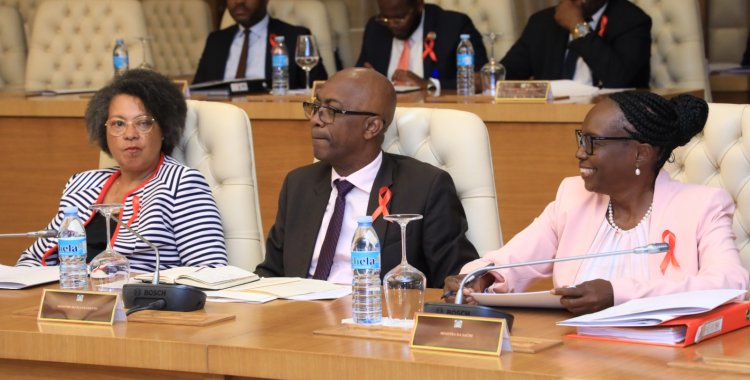"Angola reduced, between 2022 and 2023, the number of deaths from malaria, from 12 thousand to nine thousand deaths, despite the increase in the number of cases of the disease", reads a statement from the Vice-Presidency of the Republic, to which the VerAngola had access.
This result, the note adds, "is due to increased access to healthcare, early diagnosis and timely treatment".
Regarding the challenges, in terms of vector control, it is proposed to "strengthen actions at local level, in the continuation of the mobilization of financial resources and continuous training of staff".
With regard to tuberculosis, in the meeting chaired by the Vice-President of the Republic, Esperança da Costa, it was stated that, between 2022 and 2023, the number of cases and deaths from this disease reduced.
Thus, the number of cases fell from 69,252, in 2022, to 68,268, in 2023, while deaths went from 1010 (in 2022) to 503 (in 2023).
Furthermore, according to another statement from the Vice-Presidency, to which VerAngola had access, there was also "an increase in the treatment success rate, the result of which was due to the increase in testing, the 'community DOT' and actions coordinated between the various sectors".
HIV/AIDS was also on the table, with more than 300,000 citizens living with this disease in the country.
"In Angola, more than 300 thousand citizens live with HIV/AIDS, of which 195 thousand are women and 35 thousand are children between zero and 14 years old, reveals the VII National Strategic Plan for the Response to HIV/AIDS, Viral Hepatitis and Others Sexually Transmitted Infections (STI) for the period 2023-2026", reads a note from the Vice-Presidency of the Republic.
According to the document considered at the meeting, the data points to "a universe of 15,000 new infections and 13,000 AIDS-related deaths".
On the occasion, the members of the commission were informed about the "objectives, goals, strategic axes, budget, main activities, challenges and priorities of the VII National Strategic Plan for the Response to HIV/AIDS, a document that proposes the reduction of new HIV infections and AIDS-related mortality, mitigate the social determinants that worsen the epidemic, and eliminate stigma and discrimination related to the disease".
Data related to Trypanosomiasis (known as sleeping sickness) were also assessed by the committee. "Among the gains recorded, highlights include the reinforcement of the anti-vector fight integrated with the issue of mobility in municipalities endemic to sleeping sickness, the increase in active screening expeditions to remote areas, and the introduction of molecular diagnosis of sleeping sickness at the Institute for the Combat and Control of Trypanosomiasis", points out a note from the Vice-Presidency.
Still regarding this disease, the Ministries of Health and Agriculture and Forestry are strengthening partnerships, together with provincial governments and municipal administrations, in order to control the fly and reservoirs, with a view to "achieving the incidence of 1/10,000 inhabitants for five years", and currently the country has an incidence of 5/10,000 inhabitants.







